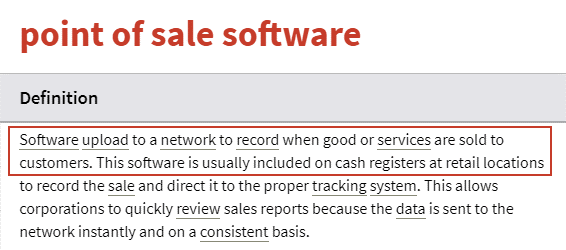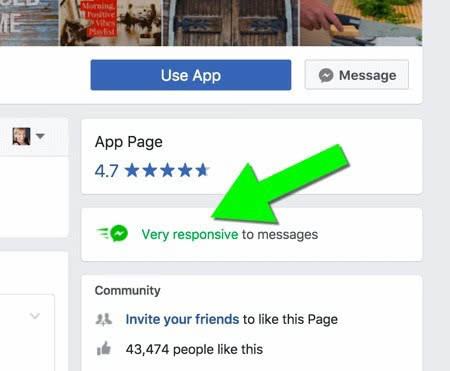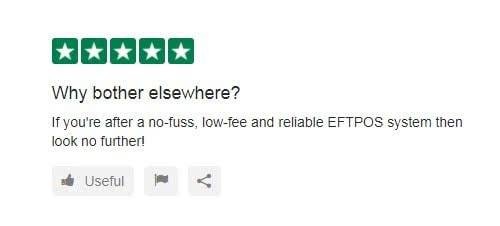
Ecommerce and Retail

When a small business is doing an EFTPOS comparison to find out what suits their business, it can be a real hassle.
Let’s break it down.
The various EFTPOS machines can be difficult to distinguish from each other, they all look and feel quite similar.
You might be tempted to run with the best looking terminal or just turn to your current personal bank to avoid the inconvenience and confusion involved in the decision process.
You just want something that works for once.
Research suggests that the majority of small to medium businesses are significantly less aware of business banking and EFTPOS outside of the big 4 in Australia.
Although most businesses have specific requirements for their EFTPOS terminals based on their POS/PMS integrations specific industry (e.g. tipping, health fund claiming, Afterpay) – up to 45% of businesses go with their primary business bank due to proximity and the fact it was the first business bank they dealt with.
There is clearly a void in useful resources that can help you reliably select an EFTPOS machine that suits your business.
That’s why we’ve summed up what EFTPOS features you should consider when selecting or switching your EFTPOS machine.
If you do not have a Point of Sale now, no need to worry about this point.
If you do, read on.
For those who are unsure what a Point of Sale (POS) is, it’s basically the software merchants use to conduct sales.
Here’s another definition…

It could be a cash register, it could be a computer, or even an iPad.
A Point of Sale is used to manage inventory, tally costs and conduct financial transactions.
As the technology for Point of Sale systems becomes more advanced, small businesses are moving away from traditional POS systems toward cloud based Point of Sale solutions…

Many small businesses are also ensuring their POS is integrated with their EFTPOS provider…
The key takeaway here is to select an EFTPOS provider with superior integration technology that can seamlessly integrate with your POS.
Here’s why:
| Related reading: 4 Reasons to switch to a modern POS platform
Having an EFTPOS that drops out all the time is like purchasing an umbrella with holes in it.

You don’t want that… And there’s nothing worse as a customer when you go to pay at a counter and your payment is rejected because their terminal has connection problems, leaving you scrambling around in the bottom of your bag for cash, or dashing off to an ATM.
No terminal technology has a perfect 100% uptime. But some providers get very close.
What you are looking for is an EFTPOS solution that:

Find out more about reliability and connectivity here.
Selecting an EFTPOS machine that’s bespoke to your business makes life easier. Easier for your customers. Which makes it easier for your business.
If you’re a retailer you want to offer Buy Now Pay Later options like Afterpay.
If you own a bar, you’d want to be able to set bar tabs.
If you’re a physiotherapist you would benefit from integrated health fund claiming.
And so forth…
To give you an idea of the different features available for different industries, we’ve put retail and hospitality in a table below.
| Hospitality | Retail |
|---|---|
| The ability for customers to pay from their tableTipping | Afterpay integration giving customers flexible payment options |
| Currency conversion | Pay from the comfort of a chair |
| Ability to setup bar tabs | |
| Ability to process transactions simultaneously |
Time is money
Benjamin Franklin
Small businesses don’t have time to spend their time with confusing manuals and tricky wires. What you want is something quick and simple to set-up, so you can focus on what is important. When searching for an EFTPOS machine you should check what the set-up process is.
Here’s a checklist:
If you’re a small business, you don’t have time to deal with difficult processes and unclear instructions.
What you want is something quick and simple to setup, so you can focus on what is important.
Speed means queues move faster and queues moving faster means your customers are happier.
I’ll sum up the result in the following, highly technical equation:
Happy Customers + Fast Moving Queues = More Sales.
If you’re looking for a guide on how fast transaction speeds should be, we recommend around a maximum of 2 seconds and a Tap & Go functionality.
Some people want to keep their card details secure and put in a PIN, but most will just tap and go.
When doing an EFTPOS comparison, we highly recommend you consider the speed of the EFTPOS terminal in question.
Changing your EFTPOS is one thing, but having to change all your bank details over could be a whole other can of worms.
It’s nice to have the option if you’re actually looking for a new bank but, if not, this might be an inconvenient extra step that could cause you a lot of administrative pain and delayed phone calls.
When switching EFTPOS, make sure you double check whether your bank can integrate with your new EFTPOS or whether you have to change – you might save yourself a lot of time.
When you’re accepting payments, you’re placing a lot of trust in your EFTPOS provider to maintain safe payments, avoid fraud. and keep data encrypted.
To protect you and your customer’s money, you should ensure that the EFTPOS system you decide to go with offers the following features:
You need an effective firewall between you and online hackers. A firewall is essentially a network security system that monitors and controls incoming and outgoing network traffic based on predetermined security rules. When you enquire for your next EFTPOS, make sure this is available.
Your POS system, and any mobile devices that connect to the same network as your EFTPOS terminals, should have anti-virus and anti-malware software installed. This will help to prevent the possibility of a virus interfering with day to day payments.
A computer virus is a type of malicious software program (“malware”) that, when executed, replicates itself by modifying other computer programs and inserting its own code.
PCI PTS are technical and operational requirements set to protect cardholder data. The standards apply to all organisations that store, process or transmit cardholder data. Make sure you check with the payments provider that their EFTPOS machines are PCI PTS compliant.
Check with your EFTPOS solution provider that they do not share cardholder data with the Point of Sale, with the merchant. Bonus points if this information is encrypted.
Protecting cardholder data is vital. If fraudsters get their hands on the PIN and other authentication data, they can impersonate the cardholder, use the card, and steal the cardholder’s identity. Also make sure that your EFTPOS provider has solutions to deal with MOTO fraud, order refund fraud, third party payments fraud and counterfeit card fraud.
A personal identification number is a numeric or alphanumeric password or code used in the process of authenticating or identifying a user to a system and system to a user. PIN protection on an EFTPOS machine is an additional safeguard to fraud.
Interested in security and fraud? Make sure you read on when doing your EFTPOS comparison.Whether you’re running a store at the markets, a bar on a remote island paradise, or pop up shop in a shopping mall, you need to be processing EFTPOS payments 24/7. Any connection issues could lose you hard earned cash.
This is why we recommend that, when searching for your next EFTPOS machine, you ensure every possible connection:
Ethernet establishes link level connections, which can be defined using both the destination and source addresses, usually via an ethernet cable. It’s the one that you plug in straight from your modem.
Wi-Fi is a technology for wireless local area networking with devices based on the IEEE 802.11 standards. It’s the one that you stream from your modem without cables.
3G, standing for third generation, is the third generation of wireless mobile telecommunications technology. This is what you use for your mobile phone. Bonus points if you find an EFTPOS provider that includes the 3G cost in the fee.
Find out more about reliability and connectivity here.
From cards to contactless, the way people are paying is changing and expanding.
Cash is still used and important to accept.
However, as cash payments decrease over time, alternative payments are on the rise. If you’re not accepting these alternative payments, you’re missing out on business.
If you look at trends over the last 5 years, you can see the use of cash is rapidly decreasing.

And contactless card payments are on the rise.

Overall, the more forms of payments you accept, the more business you can generate. It’s that simple.
Here are some of the payment methods you should consider when selecting your next EFTPOS solution:
This includes all the major credit and debit cards used in Australia – the most common form of EFTPOS payment.
Yes, more and more people are paying with their phones. If you’re not accepting this you could be losing tech savvy early adopter markets.
Very few EFTPOS services support this currently, mostly due to development costs and security issues. However, this is something to keep on the list for the near future as the market for people paying with cryptocurrency is ever expanding.
The way people pay is changing rapidly, you need to be able to accept different forms of payments, otherwise you could lose valuable customers. Find out more about payment and card acceptance here.
Australia has hit record numbers in the tourism industry. We welcomed 8.7 million international visitors in the past year, up 7.1% from last year.

That means more travellers wanting to pay for things. These travellers have a friction point, they want to pay with their overseas bank account.
The solution is Dynamic Currency Conversion. Dynamic Currency Conversion automatically converts the currency from the travellers’ country of residence to Australian dollars ($AUD).
Here are the main benefits of having an EFTPOS that can convert currency.
For your business
For your customers
Find out more how currency conversion could be useful for your business here.
A lot of businesses have crazy hours. Bars do night shifts. Grocers do early mornings. Without EFTPOS support at these times, you might be putting yourself in a sticky situation. You can check a company’s Facebook page to see how quickly they respond to your messages, but also note that not all company’s respond to support queries via Facebook.

In a survey by The Social Habit, 32% of social media users who contact a brand expect a response within 30 minutes, and 42% expect a response within 60 minutes
But time is not the only crucial aspect of an EFTPOS providers’ customer support. A study by Gallup measured how engaged customers felt after getting service at a bank.
While customers who felt that the bank offered speedy service were six times more likely to be highly engaged, customers who gave the bank high ratings on “people” factors (like the tellers’ courtesy and willingness to help) were nine times more likely to be fully engaged.
Another thing you might want to check is how people review the EFTPOS services’ customer service. You can find this on Google reviews, Trustpilot and other rating sites.
You will get some reviews like this:

…and then some like this:

You should be able to decide by these reviews whether the EFTPOS service you’re looking to pursue is reliable.
When doing a merchant facility comparison, we’d highly recommend you check out how the EFTPOS provider deals with customers.
A lock in contract is essentially a contract where you cannot opt out of ongoing payments, preventing you from switching to competitor EFTPOS services.
You don’t want that.
It’s also a red flag potentially implying the EFTPOS product is not hitting the mark, creating a need for the EFTPOS company to hold its customers in contracts.

What should EFTPOS reporting look like? On a surface level, you want it to be accurate, quick and comprehensive.
We collated a list of EFTPOS features that you should research when looking for an EFTPOS machine.
By monitoring how much you are accepting per day, you can make forecasts and budget your business expenses.
Segmenting transaction data can be useful to identify trends and make adjustments to your business in response. At the least it is important break down payments by what location, what individual terminals and at what time of the day your business is receiving the largest fluctuation in cash flow.
Powerful search functionality for individual transactions will help you access card payment transaction breakdown.
The ability to create and view past invoices, produce reconciliation reports, and see your service fees breakdown gives your business more transparency as to where your money is going.
Having digital reports means you can access information from your phone or device without relying on a printer, and manipulate the report as you like. Bonus points if there is a phone app you can log in to.
Mobile usage has never been higher. Rates of smartphone use increased from 11.1 million in Australia in 2013 to around 15.3 million in 2015.
Increasingly, people are also using mobile apps to check balances of their personal banking and business accounts. Having access to a mobile app means you can access important information about your business on the go

When researching what EFTPOS suits your business, it’s important to be conscious of the following features, these can determine how effectively your business accepts business:
If you’d like to find out more about what EFTPOS features to consider when investing in your next EFTPOS machine, or doing an EFTPOS comparison you can get in contact with leading EFTPOS and payments provider, Tryo, here.
As Australia’s business-only bank and fully integrated with Neto, Tyro provides simple and seamless EFTPOS deposits and lending to Australian businesses. Tyro is giving the business banking world a good shake up, with smart technology that could save your business time and money.
Serving more than 22,000 businesses within the Hospitality, Retail and Health industries across Australia - Tyro ensures the interests of its business customers remains core.